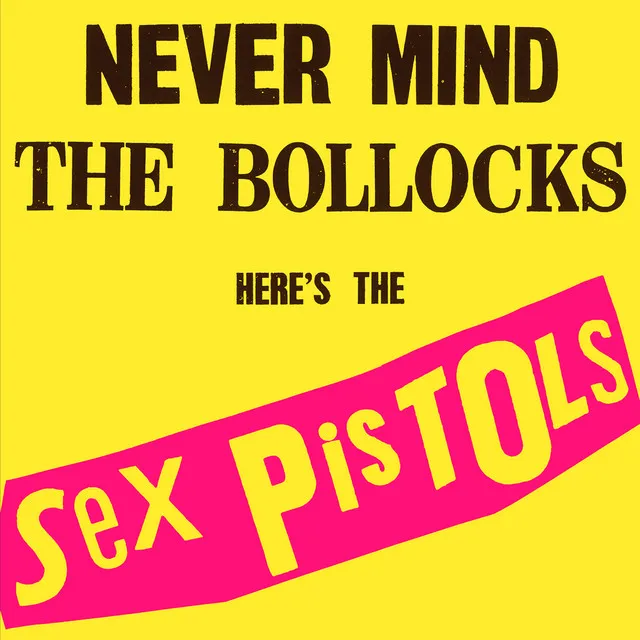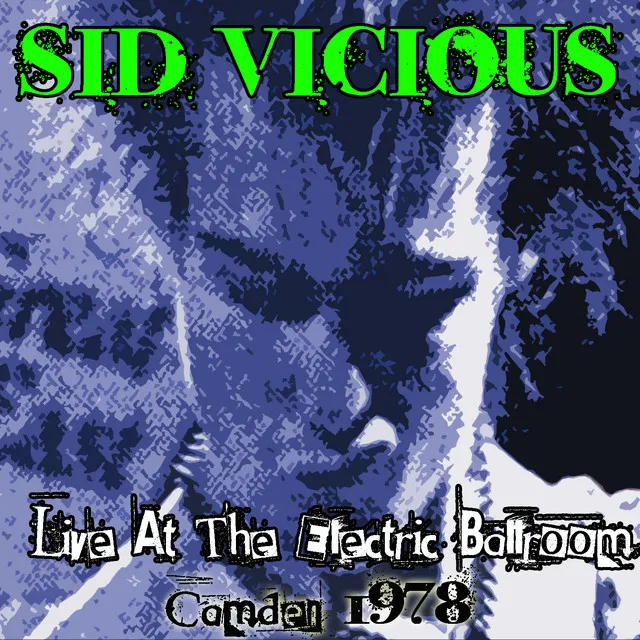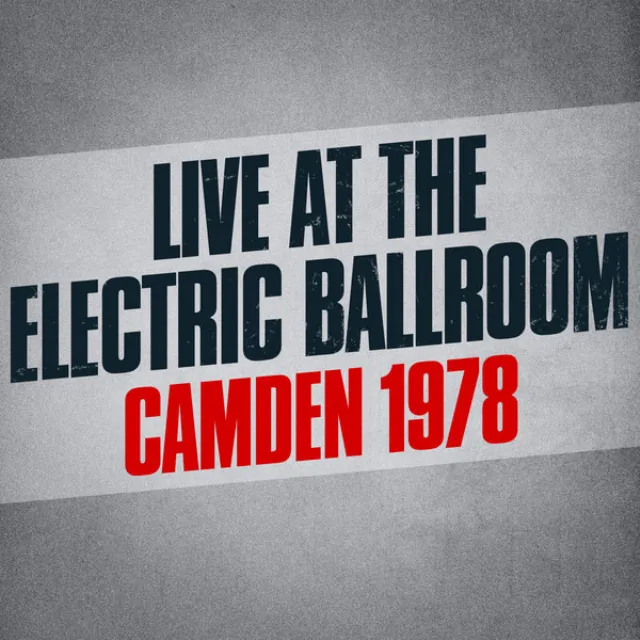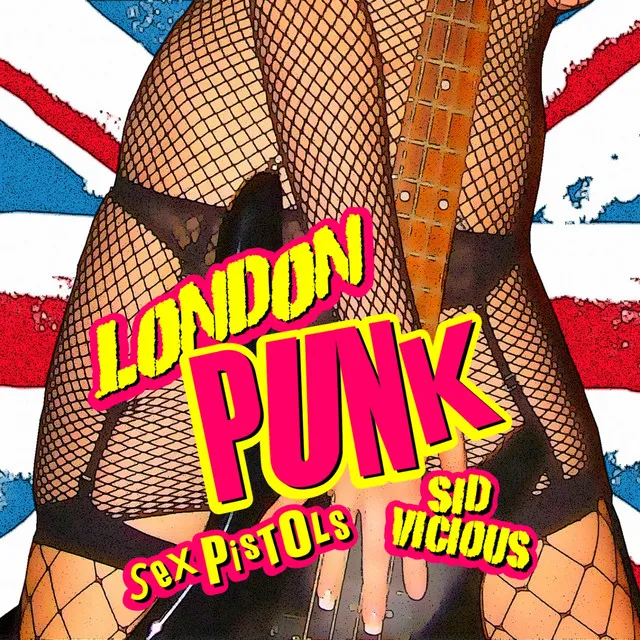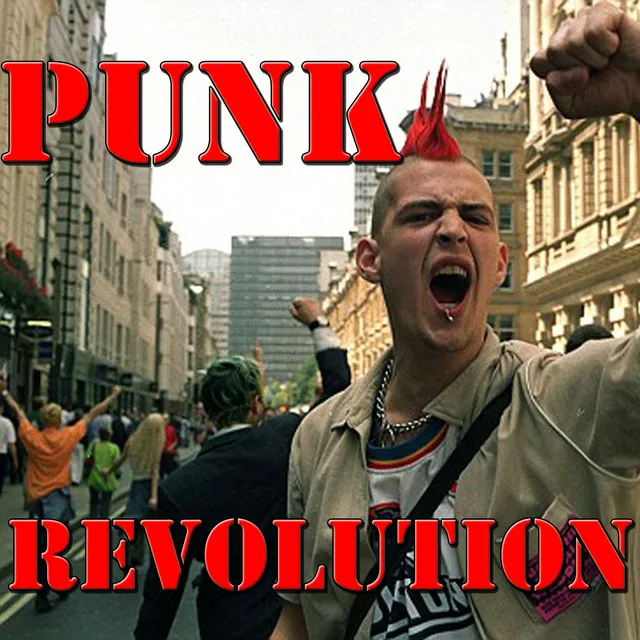They didn't invent punk rock, and they weren't the first British punk band to perform or record, but no band did more to turn punk into a global cultural phenomenon than the Sex Pistols. In just over two years, the group's success de scandale took them from utter obscurity to global infamy, beloved by converts to punk rock, hated by nearly everyone else, and subject to legal and vigilante persecution in their native England. The Sex Pistols' music was not formally groundbreaking, yet their simple meat-and-potatoes rock was filled with a power and aggression that was all but unknown in the mid-'70s, and the ferocious, sneering vocals of Johnny Rotten (as well as his pointed, accusatory lyrics) upended all expectations of how a rock frontman should look or sound. Even as the media treated them as pariahs, the potency of their music and their image spoke to an audience waiting for something different than the prog and soft rock sounds that ruled the charts in the 1970s, sparking a revolution that is still playing itself out. The group's only album from their original incarnation, 1977's Never Mind the Bollocks Here's the Sex Pistols, is a cornerstone of British punk, 1980's Flogging a Dead Horse collected the original singles that earned them their reputation, 1996's Filthy Lucre Live, recorded at a reunion concert, is that rare Sex Pistols live album with decent fidelity, and 2021's 76-77 is a box set that collects the band's pre-Never Mind the Bollocks studio sessions.
The Sex Pistols story began in 1972, when 17-year-old Steve Jones and 16-year-old Paul Cook decided to form a band. They were working-class teenagers from London's Shepherd's Bush district, and their initial influences were rooted in Roxy Music, David Bowie, and what would come to be called junk shop glam. With Jones on vocals and Cook on drums, they recruited Warwick Nightingale to play guitar, and began practicing, using the names the Strand and the Swankers. They began hanging out at a clothing boutique called Too Fast To Live, Too Young To Die, that specialized in fashions recalling the rebellion of the first rock & roll era. In time, Jones and Cook got to know Malcolm McLaren, who co-founded the shop with Vivienne Westwood; McLaren had an interest in music, media, and cultural subversion, and had briefly attempted to manage the New York Dolls shortly before they broke up. In 1974, hoping to get the band off the ground, Jones asked McLaren if he'd be interested in managing them, and he agreed, renting the band a rehearsal space. By this time, they needed a bassist. Enter Glen Matlock, an art student who worked part time at Too Fast To Live and could play the bass; McLaren recruited him to join the group. It was soon agreed that Nightingale wasn't up to the challenge of playing in the group; he was fired, and Jones took over on guitar.
McLaren had bandied about the name QT Jones and the Sex Pistols (or Cutie Jones and the Sex Pistols), but when it became clear Jones wasn't comfortable singing lead, the first part of the name was dropped and they set out to find a vocalist. McLaren first invited former New York Doll Sylvain Sylvain to front the group, but Sylvain turned down the gig, so McLaren was on the lookout for local talent when, in August 1975, he spotted an intense looking young man wearing a Pink Floyd T-shirt that he had customized by scrawling "I HATE" over their logo. Intrigued, McLaren arranged for the creative misfit, whose name was John Lydon, to meet his band over drinks at a pub. Lydon was given a makeshift audition at the shop, singing along to a 45 of Alice Cooper's "(I'm) Eighteen," and they decided to bring him aboard. Lydon was soon nicknamed Johnny Rotten, in honor of his bad teeth, and the group's lineup was complete.
The group settled into regular rehearsals, and began writing original songs, with Matlock writing the music along with Jones and Cook, and Rotten penning the lyrics. It soon became obvious that Rotten's lyrical perspective was every bit as challenging as his appearance and personality, and their tunes took on a distinctive edge. (McLaren was well aware of a new underground rock scene that was then incubating in New York City with bands like Television and the Ramones; he tried to persuade Richard Hell to sign a management deal with him, and while Hell said no, McLaren carefully noted his nihilistic outlook and purposefully ripped clothing and passed suggestions along to his new charges.) In November 1975, the Sex Pistols gave their first public performance, opening for a group called Bazooka Joe at Saint Martins College. They began the set with some covers, but their intense stage volume and cacophonous attack led to the power being pulled on them before they could play any originals. They did make a strong impression on Bazooka Joe bassist Stuart Goddard, who would soon quit the group and rename himself Adam Ant. After playing a few more college gigs, the Sex Pistols began to develop a small but loyal following, and to help publicize the band, McLaren turned to his friend Jamie Reid, a graphic artist who, like McLaren, was a follower of the Situationists, a political and creative faction whose philosophy was informed by Marxism and avant-garde art. Reid created striking graphics for the Sex Pistols' posters and promotional materials, often using found images and lettering taken from newspaper headlines in the manner of a ransom note, a technique he used to create their official logo.
As the Pistols attracted a group of fans they dubbed the Bromley Contingent -- which included future stars Siouxsie Sioux, Steven Severin, and Billy Idol -- they were booked to open for Eddie & the Hot Rods in February 1976. Their performance (in which fans invaded the stage and some of the Hot Rods' gear was damaged) was witnessed by a writer for New Musical Express who was there to review the show; his column focused on the Sex Pistols rather than the headliners, marking their first nationwide press coverage. Steve Jones was quoted in the piece as saying, "Actually we're not into music, we're into chaos," and the phrase drew the attention of music fans across the nation. A pair of students from Birmingham, Pete Shelley and Howard DeVoto, traveled to London to see the Sex Pistols and walked away converts, soon forming a like-minded band called the Buzzcocks and arranging for the Pistols to play a show in their town.
As the Sex Pistols kept gigging and the U.K. music press followed their movements, other punk bands began making noise (some of whom, including the Stranglers and the Damned, had already been playing before the Pistols caught the eye of the press), and they were considered the leaders of a small but lively scene. Record companies paid attention, and in October 1976, McLaren negotiated a deal for the Sex Pistols with EMI, one of Britain's biggest and most powerful labels. EMI wasted little time taking the band into the recording studio, and their debut single, "Anarchy in the U.K.," arrived in shops in late November. (Upstart indie label Stiff Records managed to beat the Sex Pistols to the punch by signing the Damned and bringing out their first single, "New Rose," four weeks earlier.) McLaren set out to arrange a concert tour that would feature the Sex Pistols along with rising punk stars the Clash and the Damned, as well as the Heartbreakers, an American band led by New York Dolls guitarist Johnny Thunders. On December 1, 1976, in order to publicize the single and the tour, EMI arranged for the Sex Pistols to appear on a popular TV chat show, Today, hosted by Bill Grundy. Both Grundy and the band reportedly enjoyed several drinks before they went on air live, and Grundy, bemused by the Pistols and the Bromley Contingent, challenged Jones to say something outrageous. Jones responded with a string of insults that included repeated use of the "F" word, which was immediately heard by families across Britain during the dinner hour.
The reaction to the Today appearance was immediate and severe. The media condemned the band for their foul language, and the more they looked into the Sex Pistols' music, ideas, and the rising punk rock movement, the more outraged they became. The U.K. tabloid press had a field day with the Sex Pistols, and nearly all the dates of the Anarchy in the U.K. tour were banned by wary public servants. EMI followed suit by pulling the "Anarchy" single from the marketplace (though not before it hit the British singles chart, peaking at number 34), and they dropped the band, letting them keep their £40,000 advance as a farewell gesture. While the Pistols were looking for a new record deal, Glen Matlock was ousted from the lineup and Simon John Ritchie -- a close friend of Johnny Rotten and a Sex Pistols superfan who had taken the nickname Sid Vicious -- was hired as his replacement, despite having no musical experience. In March 1977, A&M Records signed the Sex Pistols and made plans to rush release their next single, "God Save the Queen," an attack on the monarchy timed to coincide with the nationwide celebration of Queen Elizabeth's Silver Jubilee. As A&M was having "God Save the Queen" pressed, the Sex Pistols visited the label's London offices after signing their contracts, where Rotten verbally abused the staff, Vicious managed to smash a toilet, cut his foot, and leave a trail of blood in his wake, and Jones persuaded a woman to have sex with him in the women's bathroom. Between the growing controversy over "God Save the Queen," the staff's complaints about the group's behavior, and an incident in a pub where one of Rotten's friends threatened an A&M executive, the label decided they'd had enough; six days after they were signed, A&M dropped the Sex Pistols, destroying the 25,000 copies of "God Save the Queen" that had been pressed (a handful survived and became valuable collector's items) and giving McLaren and the group a £75,000 settlement.
Determined to have "God Save the Queen" out in time for the Jubilee, McLaren and the group struck a deal with Virgin Records, an independent label who were up for the challenge of dealing with the Sex Pistols. Such was the group's reputation that Virgin's usual pressing plant refused to manufacture the singles, and a printing plant objected to making the sleeves, but Virgin founder Richard Branson smoothed over the obstacles and "God Save the Queen" was available for Jubilee week. The BBC banned the song and several major record chains refused to stock the 45, but Virgin had its own chain of stores and an independent distribution network, and it was by far the top-selling single of the week. However, the British Phonographic Institute, who published the U.K. sales charts, declared that sales from record shops owned by labels would no longer be counted for chart placement, which kept the record from the number one spot -- a rule they reversed a few weeks later.
While "God Save the Queen" was a success, it came with a price. The uproar over the Sex Pistols in the British press had only increased, and Johnny Rotten, Paul Cook, and Jamie Reid were all victims of violent attacks by individuals who hated punk and loved the Queen. Virgin released a second single, "Pretty Vacant," whose lyrics were less incendiary than their previous releases; with no specific grounds to censor it, most of the nation's shops stocked the record, and the Pistols enjoyed an unambiguous commercial success. However, they were still banned from performing in most British venues, and the group set out on what became known as the SPOTS tour -- Sex Pistols On Tour Secretly, with the band playing surprise shows under assumed names at various small clubs. Meanwhile, Steve Jones and Paul Cook had been recording tracks with producers Bill Price and Chris Thomas in piecemeal fashion for a Sex Pistols album, but their relationship with Rotten was becoming strained, and Vicious, whose attempts to learn the bass were only marginally successful, was not up to playing on the sessions. Different sources contend Jones overdubbed the basslines for the tracks, while others say Glen Matlock was brought in to play the parts. In addition to being unreliable on-stage and in the studio, Vicious was also developing a dangerous appetite for alcohol and drugs, and had become involved in an increasingly unhealthy relationship with Nancy Spungen, an American rock fan who followed the Heartbreakers to England and fell in love with Sid.
With their options in England increasingly narrow, McLaren began plotting to sell the Sex Pistols to the larger world. The U.S. rock press had been following the band's antics, and Warner Bros. signed the Pistols to a North American deal. McLaren also struck upon the idea of making a movie about the group, channeling their earnings into the project. At one point American exploitation auteur Russ Meyer had signed on to direct, from a script he commissioned from Roger Ebert, but financing for the project collapsed before the first day of shooting. In the midst of this chaos, the long-awaited album Never Mind the Bollocks Here's the Sex Pistols was released in October 1977. The LP was, as expected, a commercial smash in the U.K., but American record buyers were wary. Hoping to boost interest in the record, McLaren and Warner Bros. arranged for the Sex Pistols to play a tour in the United States. A handful of East Coast and Midwest dates that were to kick off the tour had to be canceled when it was discovered the band members all had arrest records (mostly for drugs). By the time they finally obtained visas to travel to America, they were booked into a string of dates in the South and Southwest, where McLaren was convinced bored and disaffected youth would welcome the Pistols. Making their U.S. debut in Atlanta in January 1978, the band found themselves in front of audiences who, for the most part, were morbidly curious or openly hostile. Rotten's increasingly obvious distaste for the band and the media circus that followed them only made things worse, as did Vicious' heroin habit and general unreliability. The final date of the tour was at Winterland in San Francisco on January 14; it was the largest hall on the tour and one of the biggest they had ever played, and while McLaren had accepted the gig in hopes of outraging the Hippie Capital of the world, it ended up being the only U.S. date in a city that already had an audience for punk. The Pistols delivered a shambolic performance for the sold-out crowd, and Rotten ended the show with the words, "Ever get the feeling you've been cheated? Good night." That night, Rotten resigned from the group.
McLaren entertained the notion of the Sex Pistols continuing with another singer, and shortly after the American tour wrapped, he set up a publicity stunt recording session with Jones and Cook backing Ronnie Biggs, one of the men behind the Great British Train Robbery of 1963 who had been living in fugitive exile in Brazil. Rotten, meanwhile, had gone to Jamaica to help Richard Branson scout talent for Virgin's reggae offshoot label, and announced he was abandoning his stage name and was to be addressed as John Lydon. Vicious had ended up in New York with Spungen, playing occasional shows with pick-up bands, most featuring members of the Heartbreakers. In June 1978, the Ronnie Biggs track, "No One Is Innocent," was issued by Virgin, with a string-laden version of "My Way" sung by Vicious appearing on the flipside. Vicious, like Lydon, had fallen out with McLaren, and while he was persuaded to record a pair of Eddie Cochran covers with Jones and Cook, it marked the end of his participation with the Sex Pistols. By the end of 1978, Jones and Cook were at loggerheads with McLaren as he attempted to complete a Sex Pistols movie and install Tenpole Tudor as their new vocalist. Eventually they would walk away from the Sex Pistols and form a group of their own, the Professionals. Lydon also debuted a new group, the ambitious and experimental Public Image Ltd., playing their first show on Christmas Day 1978.
The biggest Pistols-related news, however, belonged to Sid Vicious, and it was all bad. On October 12, 1978, Nancy Spungen was found dead in the room she shared with Sid at the Chelsea Hotel in New York City, with a stab wound to her stomach. Vicious was arrested and charged with her murder, and McLaren quickly made his way to New York to come to his defense. While out on bail, Vicious was involved in an altercation at a nightclub where he smashed a man in the face with a beer glass. He was soon back in jail, and spent 55 days behind bars, detoxing from heroin cold turkey. Vicious was released on February 1, 1979, and his mother had planned a dinner that evening to celebrate. She purchased a cache of heroin for Sid, believing it would be better than him trying to score on the streets himself. By the end of the night, Vicious had died of an overdose at the age of 21.
A few weeks after Vicious' death, Virgin released The Great Rock 'n' Roll Swindle, a two-LP odds-and-ends soundtrack album to the Sex Pistols movie that was still unfinished. There was no band left to promote it -- Vicious was gone, and Cook and Jones had joined Lydon in a lawsuit against McLaren over his use of their royalties to fund the movie without their consent. The case would bounce in and out of legal limbo until January 1986, when the rights to the movie (which finally limped into theatrical release in 1980) and back royalties were handed over to the band. Over the next decade, a steady stream of releases -- some legally questionable -- would recycle various demo tapes and live recordings of the Sex Pistols as new generations of punk fans, as well as loyal followers of the first era, slaked their thirst for the group's music.
In 1996, the group surprised fans when they mounted a global reunion tour, with Lydon, Jones, Matlock, and Cook hitting the road for six months of dates in the United Kingdom, Europe, North America, South America, Japan, and Australia. One of the first concerts on the tour, a massive outdoor show in London's Finsbury Park, was recorded and issued just weeks later as the album Filthy Lucre Live. In 2000, the group participated in the production of a documentary, The Filth and the Fury, a study of the band's history directed by Julian Temple, who had worked with McLaren on The Great Rock 'n' Roll Swindle and ended up directing and completing the picture. More live appearances followed in England (2002) and North America (2003), and in 2006 the group sold the rights to their catalog to Universal Music. That same year, the Pistols were voted into the Rock & Roll Hall of Fame, though true to form, they refused to accept the trophy and made their dislike of the institution abundantly clear. They reunited again for a run of five British concerts in November 2007; the performance at the Brixton Academy was filmed, and released in 2008 under the title There'll Always Be an England. In addition to reissuing Never Mind the Bollocks Here's the Sex Pistols, Universal prepared and released occasional archival projects documenting the group's history; 2016's Live 1976 featured recordings of four concerts the Pistols played before signing to EMI, and 2021's 76-77 was an exhaustive collection of demos and unreleased studio sessions. ~ Mark Deming, Rovi
